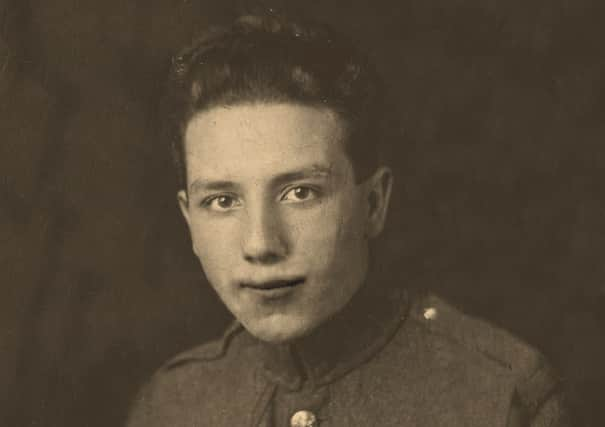My grandfather survived the war


My grandfather’s name was Rowland William Allan Stocker. Although I never met him (he was born on August 5 1898 and died in 1961, I was not born until 1965) I have heard some stories about when he was in the First World War.
He would have been 16 when war broke out and had not long left Warwick School. At that time he lived at 7 Cape Road, Warwick.
Advertisement
Hide AdAdvertisement
Hide AdAround that time he disappeared from home. Someone told his father that they had seen him marching down to Warwick railway station with some other army volunteers. Anyway, his father was able to get there in time and tell the commanding officer that he was under age. So he got an honourable discharge and was invited to re-enlist in a couple of years time.
It turns out that he and some others had lied about their ages and enlisted at Budbrooke barracks in Hampton Magna, the home of the Royal Warwickshire Regiment.
He got a position at the Eagle Engineering Company as an apprentice. It was at around that time that he met my grandmother. She went on to become an elementary school teacher.
During her teacher training she was in London and could remember the Zeppelins coming over.
Advertisement
Hide AdAdvertisement
Hide AdMy grandfather, meanwhile, was there for about a year and he tried enlisting again, this time with the Army Service Corps (known colloquially as ‘Arry Sloper’s Cavalry). Although he was still under age, on this occasion he was successful.
First of all he was stationed in Ypres. I did go there with my parents. In the old Wool Hall, there is a museum to the First World War. One photograph has three British soldiers facing the camera. My father swears that one of them is his father. He certainly looked like the photographs that I have seen of him.
One infamous area around Ypres which my grandfather used to mention was ‘Hell Fire Corner’. Whilst he was there he received a ‘Blighty wound’ and got sent back home.
After he had recovered he got sent to Salonika. The tactics there consisted of co-operating with the local Greek resistance and driving the Turkish forces out. The British forces would do a frontal assault whilst the resistance would go around the back.
Advertisement
Hide AdAdvertisement
Hide AdAnyway, he ended up in Constantinople and was stationed there for about 18 months. Although he did not like talking about his wartime experiences (the above accounts came out gradually over a period of years) he was never tired of talking about Constantinople. They finally got sent home in about 1920.
For some reason some of them had got some captured Turkish Mauser rifles that they were taking home in some kitbags.
They were on a train going through Italy when word got around that customs were waiting at the other end. So when they were going over a viaduct they threw them out the window.
Despite surviving the war mostly physically intact, he came into greatest danger when he got home. Spanish ‘flu was doing the rounds which it is reckoned killed more people worldwide than the war did. My grandfather caught it, but he survived.
He sweated so much with it that the bed springs went rusty.
After my grandfather returned to civvy street he rejoined the Eagle Engineering Company (they had kept his old position open) and got married.